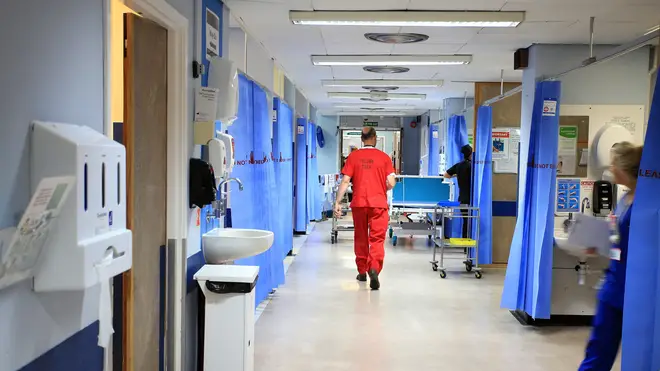
Tonight with Andrew Marr 6pm - 7pm
29 June 2022, 13:44

Public sympathy for NHS workers going on strike is high, but there is little support for striking barristers.
Half of Britons would support NHS staff going on strike if they chose to do so, a new poll has found.
Speculation that NHS workers could strike over pay has mounted in recent weeks after ministers suggested any rise should be limited to three per cent.
If they chose to walk out, they would join railway workers and criminal barristers who have already gone out on strike over pay and conditions.
Other public-sector workers including teachers, refuse collectors and postal workers are reportedly considering industrial action against the background of rising inflation and resistance to significant pay increases by the Government.
A poll of about 1,000 people carried out by Ipsos between June 22 and 23 found 50% of British adults would support an NHS strike while only 30% would oppose.

This represented by far the highest level of support for possible strikes, with 41% backing industrial action by teachers and 35% opposed.
Carol Popplestone, chair of council at the Royal College of Nursing, said: “The public understands how important pay and working conditions are to a healthy NHS.
“The fact half of the public would support industrial action within it is proof of that. They know health and social care are on their knees.
“We await the Government’s announcement of this year’s NHS pay award, which may be imminent, but know that anything less than a pay rise significantly above inflation will not be enough.
“We will ask our members if they feel the award is adequate and what further action they might wish to take.”
Barristers had by far the lowest levels of support, with only 23% supporting strike action and 46% opposing it.
Some 41% opposed strike action by civil servants, with 29% in favour, while 38% opposed strikes by airport staff, with 31% in favour.
The poll also found that, after two days of strikes on the railways, support for industrial action by the RMT remained largely unchanged.
Some 35% had supported the strikes at the beginning of the week and the same proportion was in favour by June 23. The proportion of those opposed to the strike action had increased very slightly from 35% to 36%.
Keiran Pedley, director of politics at Ipsos, said: “Following on from last week’s rail strikes, the potential for further strike action from different professions looms.
“This data shows public sympathy varies depending on the types of workers striking. NHS workers are most well supported, followed by teachers, but others less so, suggesting that not all strike action will be viewed equally in the court of public opinion.”